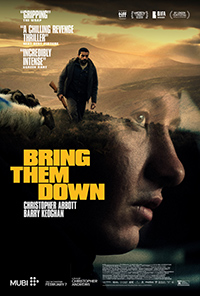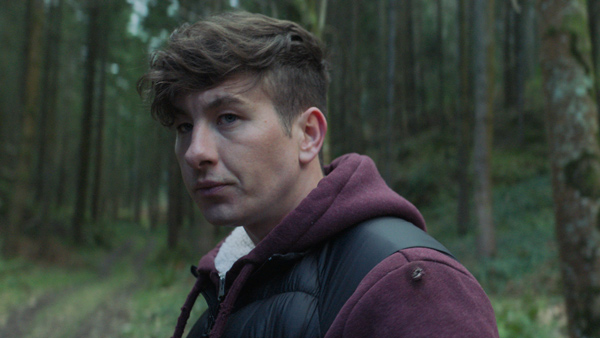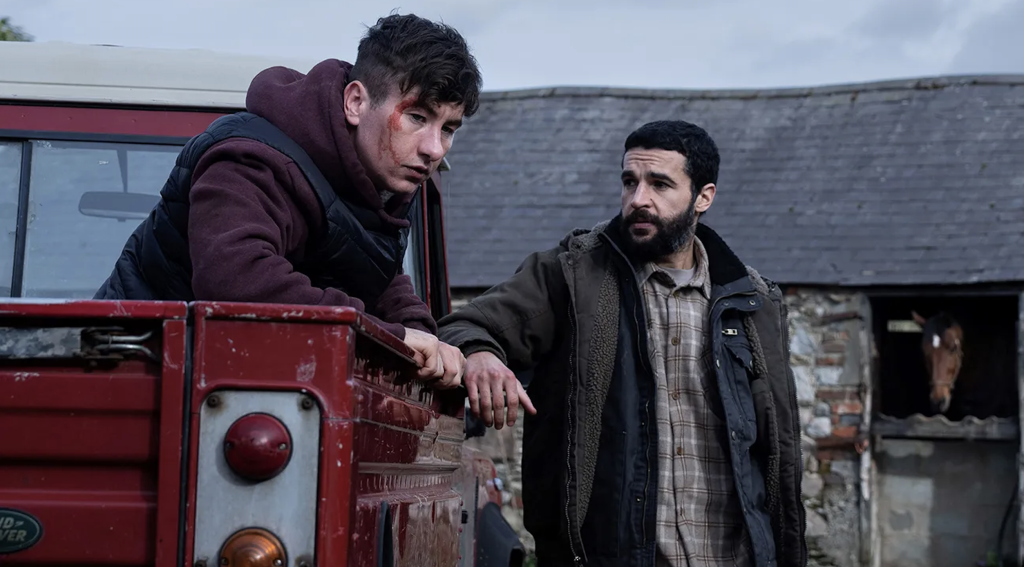Everybody Hurts: All Pain and No Gain in Christopher Andrews’ Debut Bring Them Down
 If misery loves company, then Bring Them Down is a party. The feature debut by Christopher Andrews is set in a dour and desolate vision of rural Ireland, and feels like the cinematic equivalent of walking through a foggy bog with mud up to your knees. Yet for all the atmosphere, captured by the sturdy cinematography of Nick Cooke, there’s very little of dramatic note to make this trek through the sins of fathers and sons worthwhile.
If misery loves company, then Bring Them Down is a party. The feature debut by Christopher Andrews is set in a dour and desolate vision of rural Ireland, and feels like the cinematic equivalent of walking through a foggy bog with mud up to your knees. Yet for all the atmosphere, captured by the sturdy cinematography of Nick Cooke, there’s very little of dramatic note to make this trek through the sins of fathers and sons worthwhile.
After a dramatic, backstory-establishing car crash opens the picture, the film settles into a loose Rashomon-like structure that pivots around the events that follow. The first half centers on sad sack, monosyllabic Michael (Christopher Abbott), who keeps the family sheep business running with his own two hands, while his father (Colm Meany), awaiting knee-replacement surgery, commands his son from the kitchen table. When two sheep go missing, Michael finds them at the market in the pen belonging to Gary (Paul Ready), a neighboring sheep farmer who has piled up a pile of debt by trying to “diversify” his business by building tourist cottages. Lodgings that would require access through Michael’s pasture that his father refuses to allow.

The two missing sheep are just the start of a bloody affair that’s set in motion by Jack (Barry Keoghan) who steers the second half of the film. Son of Gary and Caroline (Nora-Jane Noone) — who also happens to be Michael’s ex — his misguided decision to turn to drastic measures to help dig his father out of the hole and save his parents’ marriage leads to the film’s inevitably tragic conclusion. But frankly, it’s all so much for so little.
Working from his own screenplay, Andrews uses the broad brushstroke of Trauma to answer for the motivations of Michael and Jack, but their characters are so thinly sketched out, one wonders where their common sense has got up and run away to. Never have a group of men so desperately needed therapy, but in the absence of a fully formed view of the pasts that haunt them, their decisions are often mystifying. And this is even in the hands of very capable performers. Abbott is solid as the taciturn Michael, hiding behind a beard, and with a flash of anger at the ready. But if he has any aspirations of a life beyond the farm, and the conflicted pain and resentment toward, it remains shrouded.
As for Keoghan, he settles into his now familiar tics of mumbling and talking into his chest, but who can blame him, when he’s given so little to work with. It doesn’t help that he feels about five years too old for the role he’s playing. Jack’s worry about his parents splitting up feels more attuned to an adolescent than a young adult riding around in a souped up car with his cousin, blasting techno beats.

“Where there’s livestock, there’s deadstock,” quips Jack, and that’s about as deep as Bring Them Down gets. It’s a drama that postures at importance, that sends out the signal of weighty concerns, without diving deep into a story about class, the burden of generational guilt, and the erosion of stability in traditional labor that’s just waiting there to be wrestled with. Instead, Michael and Jack inflict harm on each other without understanding why, and as the audience watches, we’re equally confused by what it’s all supposed to mean.
Reviewed on September 10th at the 2024 Toronto International Film Festival – Special Presentations Programme. 105 Minutes
★/☆☆☆☆☆


